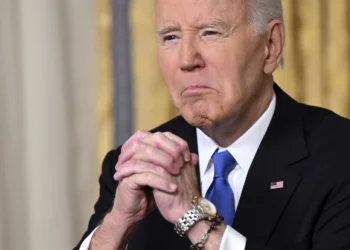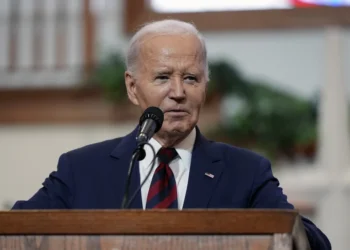Chester A. Arthur advanced to the presidency after the assassination of James Garfield and struggled to find his footing even though he was an experienced bureaucrat and political insider. He often found himself in opposition to his own Republican Party by vetoing congressional legislation — the Rivers and Harbors Act of 1882 (packed with pork-barrel patronage) and the Chinese Exclusion Act (he favored immigration and trade, forcing Congress to cut the ban duration in half) — but it was his independence coupled with his Bright’s disease diagnosis that doomed his political future.
Having lost his political allies, Arthur failed to win his party’s nomination at the 1884 Republican Convention in Chicago. Within months, Arthur had left the White House, now sparkling with renovations overseen by Louis Comfort Tiffany and considered by the former president as one of his greatest accomplishments.
The Republicans had tapped James G. Blaine of Maine as their presidential candidate, and even the party seemed confused by the selection. Blaine had enemies scattered throughout the party, since almost every leader had at some time been attacked or shocked by Blaine’s behavior. The newspapers portrayed him as a politically immoral leader, often working for big business interests.
The Democrats selected Grover Cleveland as their candidate. Financially unable to attend college, Cleveland had gone to work while studying the law in his free time. Obviously bright, he was admitted to the bar in 1858 when only 22. Cleveland’s résumé included a reputation as a moving orator; assistant district attorney for Erie County, New York; Erie County sheriff; Buffalo mayor; and New York governor.
His reputation as a tireless campaigner for reform and the governor who had defeated the Tammany Hall machine gained him friends across the nation. “Big Steve,” a childhood nickname since his name was Stephen Grover Cleveland and he was a big guy, was known as a good buddy who loved to hunt and fish, play poker, work hard, and make a difference. Not a bad reputation…
Cleveland’s Tammany Hall fight appealed to the middle-class voter, and his reform programs attracted Republicans. The fact that he would carry New York made him a triple threat to Blaine — and while the Republicans attempted to smear Cleveland’s character, a narrow popular vote resulted in a 210-182 electoral vote victory for Cleveland.
During his first (and nonconsecutive) term, Cleveland’s primary focus was domestic policy. However, his contribution to foreign affairs was an action that would foreshadow the approaching new century. He is remembered as the “Father of the Steel Navy” because of his push for the construction of a modern navy based on strength and superiority. The new design for the U.S. Navy featured steam-powered steel cruisers, steel rams, and steel-clad gunboats, and it would be constructed by shipyard personnel operating under a new policy that was designed to curb graft, fraud, and corruption. His Secretary of the Navy William E. Chandler, implementing Cleveland’s plan, established the Naval War College and the Office of Naval Intelligence. (Today’s NCIS fans just applauded…)
In the domestic arena, Cleveland made friends while angering others. He refused to sign a bill offering drought relief to Western farmers, arguing it was not a “national” issue, and tightened the requirements for veterans’ pensions, turning away hundreds of applicants for “fraudulent” claims. He opposed the temperance movement and refused to engage federal forces and policies to encourage Southerners to accept African-Americans as “full” citizens and social equals. He also opposed integration of Northern schools. Striking in its contrast with African-American policy, Cleveland first supported Chinese immigration and assimilation, but when howls against the Chinese continued, he backed off, accepting that the Chinese culture was too alien for integration into the predominantly European culture of most citizens. He then pushed for limits and authorized that those who had left the U.S. to visit family in China would not be granted readmission to the United States.
Perhaps the action causing the most lingering debate was Cleveland’s attitude toward native peoples. He endorsed a policy that would eliminate tribal culture and history. Private ownership of former reservation land for tribal members was accompanied by English-only education, an end to tribal gatherings and traditional dance, etc., with family oversight to be conducted by federal employees. Any lands not secured by individual members would revert to the U.S. government. Much land given to individual tribes in “swap deals” disappeared, along with the little remaining trust in the federal government.
And then it was time for another campaign.

















